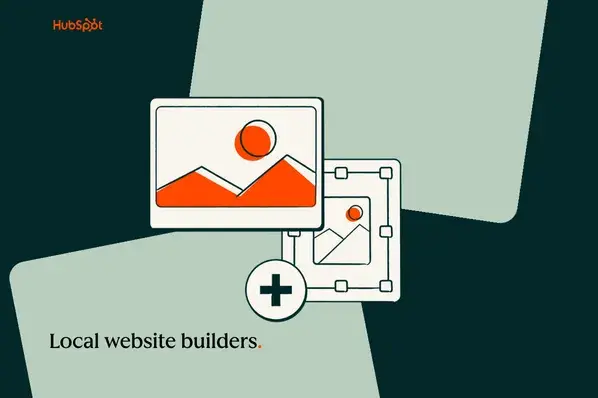.io domains, beloved by tech startups, offer an opportunity to generate a URL that nobody else has. But what exactly is an .io domain, and what are the pros and cons of using one? This post will walk you through everything you need to know about this emerging domain extension.
What does the .io domain extension mean?
As a refresher, a TLD is simply the ending of a website address, such as .com, .net, or .org. You can find it at the far right of a website address, and it's sometimes referred to as the "domain ending."
In addition to popular TLDs such as .com or .gov, country code top-level domains (ccTLDs) are assigned to different countries and territories. These are always two-letter designations. For instance, the code for France is .fr, while domain names in Australia have .au at the end.
The domain extension we're exploring today (.io) is the ccTLD for the British Indian Ocean Territory (BIOT), which has been an overseas territory of the United Kingdom since 1965. Despite this, the .io domain was never intended to be a country-specific extension. That's because there are no official permanent residents of the BIOT, only US military personnel and UK government officials temporarily.
In other words, there are essentially no restrictions on who can use this TLD. Any individual or entity can register a .io domain name, and most .io sites are completely unrelated to the location. Additionally, most internet users are unaware that .io has a country-related background.
Why do tech startups love .io domains?
Recently, .io domains have gained momentum with tech companies, especially startups. Here's why:
.io domains are associated with the tech industry
The primary reason tech companies gravitate toward this domain extension is that in computer science, "IO" is a common abbreviation for input/output, describing how computers (and other information systems) communicate with the world.
Therefore, using a .io domain immediately indicates to consumers that your organization is a technology company. The domain is also associated with gaming and cryptocurrency. And as more tech firms adopt it, more consumers become familiar with the association.
.io domains can be used as a domain hack.
A domain hack is when you create a web address that incorporates the domain as part of the brand name to create a more memorable URL. This could suit your branding and is easy for users to recall.
An .io domain extension is also ideal if your business name already contains a word ending in io. For instance, for radio or studio, you could create an address that ends rad.io or stud.io. A famous example is former presidential candidate Marco Rubio who used rub.io for his campaign in 2016.
.io domains are more widely available than .com domains.
The problem with .com domains is that they're very popular—making up 50.2% of all worldwide TLDs as opposed to 0.5% for. io—and most of the good ones have already been taken. If you want one, you might have to rename your business or pay a substantial amount to acquire the desired .com domain from whoever owns it.
Even though the popularity of .io domains has increased in recent years, it's still far more likely that the name you're looking for will be available—and at a more affordable price than .com. This enables you to stick with your current branding.
.io domains can be registered with no extra requirements.
Many ccTLDs are only available for residents or organizations in the relevant country. But some—like .io—have no such restrictions. Anyone worldwide can register a .io domain without requiring a local presence in the British Indian Ocean Territory.
The only limitation on .io domain names is that they must be between 3 and 63 characters in length and may only contain alphanumeric characters and hyphens. You should also familiarize yourself with the contract terms between you and the domain name registrar.
.io domains are treated as generic top-level domains by Google.
Google and other search engines treat some ccTLDs as country-specific. In other words, websites that use those codes are less likely to appear in worldwide search results. (Think of it this way: How often do you see websites from Italy with the .IT ccTLD appear in your Google search results if you live in the United States?) The good news is that Google doesn't do this with .io domains.
It classifies .io as a "generic top-level domain" (gTLD), so it's treated like any other widely-used global domain such as .com. Even though it's technically a ccTLD, Google recognizes that .io is used almost exclusively by people outside the British Indian Ocean Territory—so worldwide users who search for your business (or related keywords) will see it in the SERPs.

Are there any pitfalls to consider when choosing an .io domain extension?
There are many benefits to using an .io domain—but are there any pitfalls? Here's what you need to think about.
Prices for .io domains are higher.
Although .io domain names often are less costly than a .com, their growing popularity in the tech space means prices are rising. So are "squatters," who buy up domain names to flip them for profit. This is not ideal for startups on a low budget. (If that's you, check out the complete guide to building and running a website on a budget or with a small team.)
If you want an .io domain, it may be worth investing now before prices rise further and the best names are scooped up. Plus, since you can usually only register a domain name for either one, three, or five years, new businesses don't have to pay for a lengthy commitment. Try .io for a year and see how things go using website benchmarks to assess the site's performance.
.io domains are not as widely recognized as .com domains.
Though users familiar with the tech space will instantly recognize a .io domain name as belonging to a tech-related business, it could confuse other users. Those unaware of the tech connection may assume that your company isn't as established as a business with .com in its name. .com domains are already associated with reliable and experienced companies, but .io is yet to earn that reputation.
.io domains can also be harder to find. When searching online for a company's website, most users will automatically try .com at the end of the address. You'll need to make it clear to customers that your domain name ends with .io.
.io domains can be seen as less trustworthy.
People unfamiliar with .io might not trust a website with that TLD. It's also possible that its status as a ccTLD could confuse people. . But as long as you choose a reliable ICANN-accredited provider that offers SSL certificates for your site, .io domains are perfectly safe. There are also a number of rules, authentications, and safety restrictions that apply to all domains and yours will be deactivated immediately if you breach any regulations.
You can get creative with .io domains.
You don't necessarily have to be a tech company to benefit from a .io domain. Any business can have fun creating play-on-word addresses in order to strengthen brand identity recognition. For example, a photographer or artist might use stud.io or portfol.io.
.io also has different meanings in some languages. It translates as "I" in Italian, and "something" in Esperanto.

Should you use a .io domain for your business?
It's worth weighing up the pros and cons of .io domains before making the leap. They're perfect for tech companies or businesses seeking a clever domain hack. While .io is still relatively new, non-tech companies run the risk of people not understanding the meaning—and of perceiving your business as inexperienced or even untrustworthy.
.io domains are cheaper than their .com counterparts, and there's far more availability, so you can stick to your existing branding. Being shorter than many other extensions, it's easy for people to recall and type into a browser. With no special requirements, .io domains are easy to register. Just be aware that prices are increasing as the extension becomes more popular.
Give .io Domains a Go
.io domains are popular with tech startups thanks to their association with computer science, but any business can take advantage of their wide availability and easy-to-remember nature. And you can register an .io domain from anywhere in the world without needing a local presence in the territory they're technically associated with. Make sure you choose a reliable registrar and have fun creating your domain name.
Website Development
.png?width=112&height=112&name=Image%20Hackathon%20%E2%80%93%20Vertical%20(50).png)

.png)




![How to make a website with user accounts and profiles [with WordPress, Wix, and more]](https://53.fs1.hubspotusercontent-na1.net/hubfs/53/%5BUse%20(3).webp)
![How to build a Google Site that looks good and drives business [templates & examples]](https://53.fs1.hubspotusercontent-na1.net/hubfs/53/Website%20Redesign%20Terms.png)




